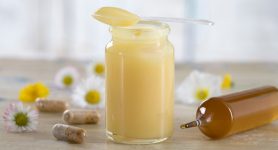- Diseases
- Acoustic Neuroma (14)
- Adrenal Gland Tumor (24)
- Anal Cancer (68)
- Anemia (2)
- Appendix Cancer (16)
- Bile Duct Cancer (26)
- Bladder Cancer (72)
- Brain Metastases (28)
- Brain Tumor (230)
- Breast Cancer (720)
- Breast Implant-Associated Anaplastic Large Cell Lymphoma (2)
- Cancer of Unknown Primary (4)
- Carcinoid Tumor (8)
- Cervical Cancer (158)
- Colon Cancer (164)
- Colorectal Cancer (114)
- Endocrine Tumor (4)
- Esophageal Cancer (44)
- Eye Cancer (36)
- Fallopian Tube Cancer (8)
- Germ Cell Tumor (4)
- Gestational Trophoblastic Disease (2)
- Head and Neck Cancer (8)
- Kidney Cancer (126)
- Leukemia (344)
- Liver Cancer (50)
- Lung Cancer (288)
- Lymphoma (284)
- Mesothelioma (14)
- Metastasis (30)
- Multiple Myeloma (98)
- Myelodysplastic Syndrome (60)
- Myeloproliferative Neoplasm (4)
- Neuroendocrine Tumors (16)
- Oral Cancer (100)
- Ovarian Cancer (172)
- Pancreatic Cancer (164)
- Parathyroid Disease (2)
- Penile Cancer (14)
- Pituitary Tumor (6)
- Prostate Cancer (144)
- Rectal Cancer (58)
- Renal Medullary Carcinoma (6)
- Salivary Gland Cancer (14)
- Sarcoma (238)
- Skin Cancer (296)
- Skull Base Tumors (56)
- Spinal Tumor (12)
- Stomach Cancer (62)
- Testicular Cancer (28)
- Throat Cancer (92)
- Thymoma (6)
- Thyroid Cancer (96)
- Tonsil Cancer (30)
- Uterine Cancer (80)
- Vaginal Cancer (16)
- Vulvar Cancer (20)
- Cancer Topic
- Adolescent and Young Adult Cancer Issues (20)
- Advance Care Planning (10)
- Biostatistics (2)
- Blood Donation (18)
- Bone Health (8)
- COVID-19 (362)
- Cancer Recurrence (120)
- Childhood Cancer Issues (120)
- Clinical Trials (632)
- Complementary Integrative Medicine (24)
- Cytogenetics (2)
- DNA Methylation (4)
- Diagnosis (230)
- Epigenetics (6)
- Fertility (62)
- Follow-up Guidelines (2)
- Health Disparities (14)
- Hereditary Cancer Syndromes (124)
- Immunology (18)
- Li-Fraumeni Syndrome (8)
- Mental Health (118)
- Molecular Diagnostics (8)
- Pain Management (62)
- Palliative Care (8)
- Pathology (10)
- Physical Therapy (18)
- Pregnancy (18)
- Prevention (916)
- Research (398)
- Second Opinion (74)
- Sexuality (16)
- Side Effects (608)
- Sleep Disorders (10)
- Stem Cell Transplantation Cellular Therapy (216)
- Support (402)
- Survivorship (322)
- Symptoms (184)
- Treatment (1790)
What is royal jelly?
4 minute read | Published January 17, 2025
Medically Reviewed | Last reviewed by Lindsey Wohlford on January 17, 2025
A bee product called royal jelly has been getting plenty of buzz online lately. A quick search for ‘royal jelly’ pulls up many purported health benefits for humans: Brain boosts! Mental sharpness! They really do sound like royal jelly would leave you feeling like royalty.
But wading through wellness claims can be, well, sticky. We spoke to wellness dietitian Lindsey Wohlford to learn more about royal jelly and to find out if its benefits extend outside the hive.
Royal jelly is a bee product, but it isn’t the same as honey
While royal jelly and honey are both bee products, Wohlford explains a few key differences.
How they are made
Royal jelly is secreted from the glands of worker bees. It is eaten by the queen bee and bee larvae.
Honey is created from the nectar bees get from flowers. Bees bring nectar to their hive where the nectar’s sugar becomes concentrated through water evaporation and enzymatic actions.
Nutritional breakdown
Royal jelly is more nutritionally dense than honey which is mostly made up of sugar. Here’s a more in-depth look at the nutritional breakdown of each, per a 2017 review.
Royal jelly:
- 50% to 60% water
- 18% protein
- 15% sugar
- 3% to 6% fats
- The remaining contents include vitamin E, biotin, folic acid, niacin, pantothenic acid, riboflavin, thiamin, copper, calcium, zinc, iron, sodium, potassium, manganese, as well as phytonutrients such as phenols and flavonoids.
Honey:
- 82% sugar
- 17% water
- The remaining contents include small amounts of vitamins and minerals, as well as phytonutrients, such as flavonoids, phenolic acid, carotenoids and enzymes.
Royal jelly’s benefits are still being researched
Royal jelly seems to have just as many purported benefits as it has nutrients, which is to say many. But what do we know for sure about how royal jelly impacts health?
“It is known to potentially have antibacterial, anti-allergen, anti-inflammatory, antidiabetic and immunomodulatory effects,” Wohlford says.
Additional claims tout the promise of royal jelly for everything from overall health benefits like anti-inflammatory and anti-aging effects to improving specific conditions such as cholesterol, glucose levels, blood pressure, immune function and menopause symptoms, Wohlford adds. However, more research needs to be done before we know for sure whether these claims are more than just that: claims.
“While royal jelly has been used anecdotally for many centuries and some research shows promise, current research in humans remains limited and most health claims are unproven at this time,” she says.
There isn’t a recommended dosage for royal jelly supplements
The royal jelly available for human consumption can be found in a variety of formats including its natural jelly-like state, as a powder or in capsules.
Like all other supplements, royal jelly is not regulated by the Food and Drug Administration (FDA) for safety or efficacy, Wohlford says.
“Different brands may have varying potency and quality of ingredients due to the lack of regulations,” she says.
While most supplements provide 1,000 milligram doses of royal jelly, Wohlford says there aren't recommendations for how much royal jelly to consume per day. The dosage of royal jelly used in research also varies from as little as 150 milligrams a day all the way to 4,000 milligrams a day, she adds.
“A recommended dosage has not been established due to limited research and the various forms of royal jelly available,” she says.
Royal jelly isn’t the best choice for everyone – including some cancer patients
When you are considering a supplement – whether that be royal jelly or anything else – Wohlford recommends talking to your doctor and care team first.
Royal jelly isn’t the best choice for everyone. Wohlford says royal jelly may be unsafe if you are:
Allergic to bee products
Royal jelly can cause health issues like allergic reactions and gastrointestinal issues for those with allergies to bee products.
Have a hormone-related cancer or condition
Those with estrogen receptor-positive breast cancer and other hormone-related cancers and conditions should avoid taking royal jelly. This is because royal jelly has shown estrogenic activity, Wohlford says. In the case of estrogen receptor-positive breast cancer, estrogen can fuel cancer’s growth.
Taking certain medications
Royal jelly can interact with some medications including:
- Blood thinners
- Chemotherapy
- Hormone replacement therapy (HRT)
- Diabetes medication
Talk to your doctor before adding supplements to your diet
Interested in the health benefits of royal jelly, but not ready to try it out quite yet, whether that be due to your budget, health issues or desire to wait for more evidence-based information? While Wohlford says there isn’t any food that can serve as a dupe for royal jelly, a healthy diet can provide similar benefits.
“Consuming a variety of colorful whole plant-based foods provides a high-fiber, nutrient dense, and phytonutrient-rich diet which is recommended to reduce your risk of chronic diseases and support immune function and healthy aging,” she says.
Request an appointment at MD Anderson online or call 1-844-551-2774.

Current research in humans remains limited.
Lindsey Wohlford
Wellness Dietitian





